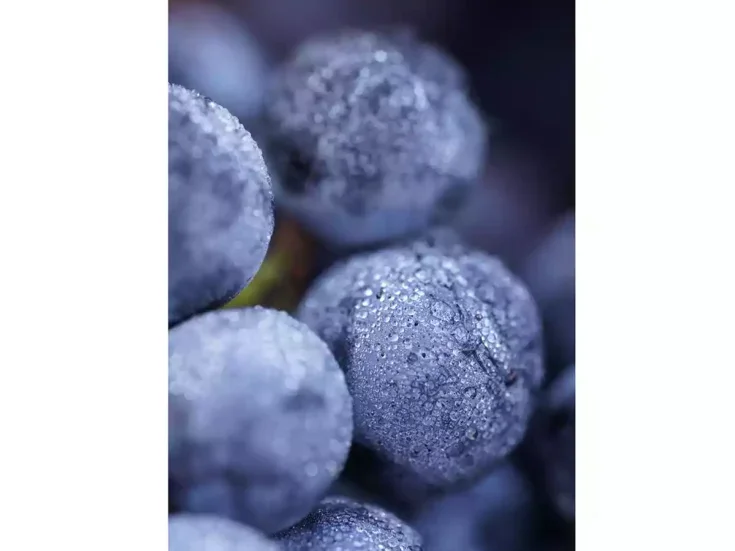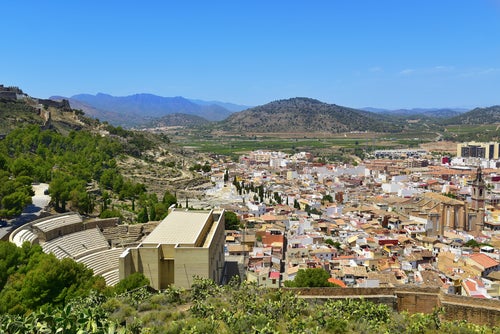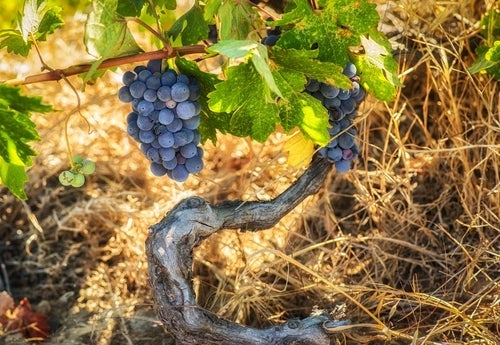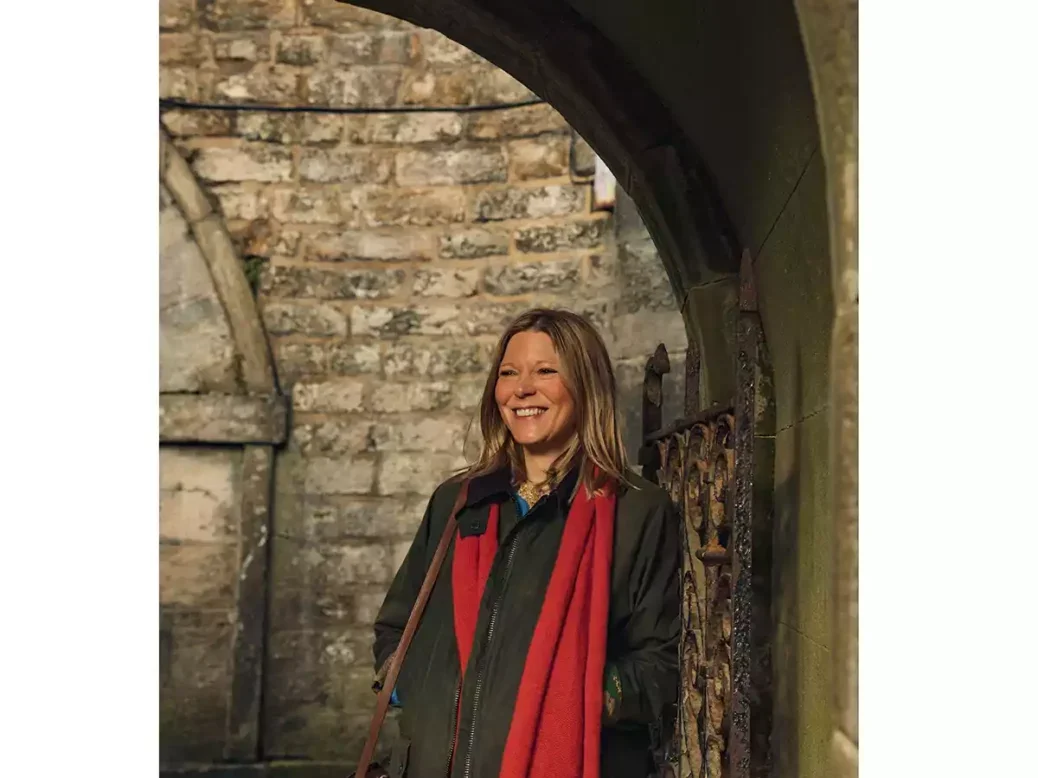
Stuart Walton reviews Cold Kitchen: A Year of Culinary Journeys by Caroline Eden.
At the end of the third chapter of her culinary almanac, Caroline Eden lets slip a careless wisdom: “It is far easier to delight in a place, rather than a person, for ever.” The sentiment is not intended in misanthropic mood. People who have delighted the author make their entrances and exits throughout Cold Kitchen. But the places to which she returns, even under the threat of war and invasion, retain something of the mesmeric appeal, the fascination of otherness, they first exerted on the traveler. Even when they have changed, there is an immutable core in them that defies the harrowing of history.
It is no spoiler to divulge that what binds cultures together, and reaches out to the heart of the intrepid traveler, turns out to be food. What people cook and eat, and when, and how, are the informing enquiries of Eden’s singular new work, a worthy successor to the author’s previous volumes. While others have stuck to the tirelessly trodden shores of the Mediterranean, leaving no Italian bullock track unmapped, Eden’s spiritual home as a culinary traveler extends across a huge arc from Eastern Europe to Central Asia. Here is a writer who recalls filing “my first ever feature, sent to a newspaper editor from an internet café in Samarkand.”
Despite its apparently bleak title, Cold Kitchen is replete with the warmth of treasured memory, weaving a densely textured fabric of recollections that spin out from the author’s subterranean kitchen in Edinburgh. Divided seasonally, it follows the earth’s turn from deep winter, to the mellowing and sharpening of autumn, the reminiscences of recent travels prompted by whatever Eden is cooking today. Sometimes she lingers in the kitchen in the dead of night, folding filo sheets around strudel filling. At summer’s onset, making thin bilberry jam for spooning into porridge, she recalls walking in the Scottish Highlands and coming upon a solitary wild cloudberry, its startling juice bursting on her palate in a truly ambrosial moment, and then some:
Immediately, its taste unlocked the gates to other northern lands and, as the last of the sweet-sour flavour fizzed out on my tongue, overlaying images sped joyfully through my mind: birch forests, mountains, glittering lakes, snowy trains, windswept taiga. I lingered over that single cloudberry, cherishing it, more than caviar, more than whisky or truffles, more than anything else I had ever eaten, smoked or drunk before.
At the end of each chapter, Eden shares a recipe with the reader, calling on a repertoire of fortifying carbo-charged sustenance—pastry, rice, bulgur—leavened with northern berries and dried fruits. The catchment dips in an agile loop as far south as Turkey for a little hoşaf, honey-rich fruit compote, but essentially these are formulas to keep out the cold.
The text is generously seasoned with citations of the work of other food and travel writers, a relatively rare recourse in a book of this nature, and not always of the usual suspects. It was good to be reminded of Carla Grissmann’s monograph on Turkish village life, Dinner of Herbs (2001), and also to enjoy David Hume’s cosmopolitan pride in his own sheep’s head soup, perfected during a 1769 sojourn in Paris, as well as the Beat poet Lawrence Ferlinghetti’s Russian odyssey of 1967: “The Face of Siberia has ice eyes and a beard full of icicles.”
Eden has the travel writer’s consummately evocative, two-edged gift of either transporting the reader back to any place they happen to have been, or projecting them forward in imagination to anywhere they might always have wanted to go. Her Riga looks and smells more or less identical to the Riga I twice visited in the late 1990s, particularly in the teeming plenty of the Central Market, where tubs of dried fish vie with bushels of dried herbs for olfactory attention. My host could hardly wait to see what face I would make at the first swallow of Black Balsam. “[I]n Baltic states,” Eden assures us, “chefs are only slightly swayed by global food.” In 1996, they were sufficiently swayed by it to try dressing tempura-battered strips of veal liver in pomegranate cream, to precarious effect.
In Warsaw, Eden looks at Aleksander Gierymski’s Jewish Woman With Oranges (1880) and displays an assured ekphrastic gift in teasing out its deeper social meanings. “Her demeanour, unbearably tired and sad, exudes a sort of resigned hunger, more than the empty feeling you get between meals, more of a hurting hunger, a hunger born of never quite having enough. A hunger born of not knowing when you will eat next.” The notion of selling food when you can barely afford to feed yourself seems premonitory of the catastrophe the following century was secreting, when Poland would be the European epicenter of the Holocaust.
There is a vivid seam of ethical reflection running throughout Cold Kitchen, at its most eloquent when the author sits in a Kraków café meditating on inhumanity. It only takes a twist of the kaleidoscope before the exorbitant cruelties of history seep into the everyday banalities, staining everything with alienated disaffection. A fried egg evokes the moment in Hitchcock’s To Catch a Thief (1955) when Mrs Stevens (Jessie Royce Landis) disdainfully stubs out her cigarette in a runny yolk. Even the innocent milk bar becomes the one that Alex and his delinquent gang frequent in A Clockwork Orange (1971). “How do we learn to live with these things if we don’t speak of them?” Eden wonders.
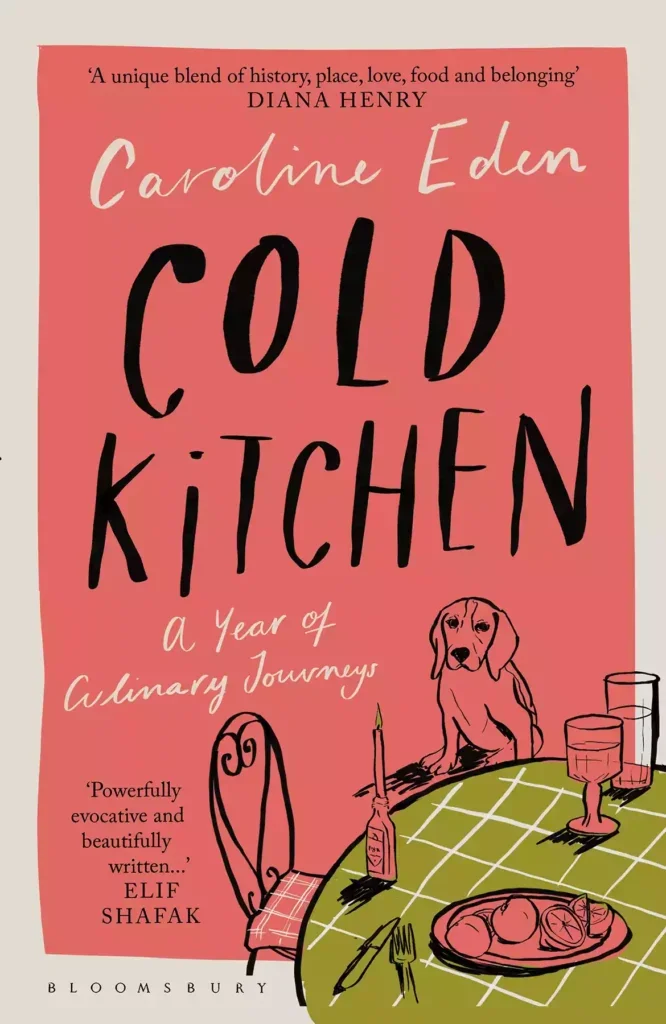
Cold Kitchen in a lyrical register
The metaphysical streak in food writing that aims for the lyrical register is notoriously hard to avoid, and Caroline Eden serves forth her fair share of it. Cooking sustains the soul, brings hope and joy back to flagging spirits, reminding us of what it means to be human. These are refrains that seem to blanch the sensuous materiality from food even while ostensibly celebrating it, and they have become part of the journalistic regimen. “Walking is a medication,” Eden declares, setting out with her husband James on a two-day hill walk to get over the death of their dog. Those who could scarcely envisage anything more appalling during a fit of the glums than 48 hours of grim route marching will find nothing here to persuade them otherwise. That cloudberry is made to do a lot of spiritual heavy lifting. Cooking can hardly be mindfulness, as Eden ventures here, if you are in the habit of listening to the radio news while you are frying up crumbled rye bread.
Notwithstanding that, Eden has a facility with poetic writing that brings her scenarios into vital presence. The similes alone are hardly ever less than arresting: Stewing apricots are “like wrinkly skinned cheeks,” Latvian gray peas “the color of marbled slate.” A cliché can thriftily be turned into something more productive, when the winter kitchen full of the smell of baking is “cosy as a nut.” Even the odd overreach, instead of provoking bafflement, becomes suggestive. Returning home after another trip, she finds it “quiet as figs.” That quiet? Then again, it can be hard to compete with a true master: Alexandre Dumas père, traveling through the Caucasus in the 1850s, described the sparkling wines he tasted there as “epileptic cocoa.”
Caroline Eden ends her year of travel memories in Lviv, western Ukraine, three months before Putin launched the Russian invasion. Her portrait of the present-day country encompasses visionary Polish writer Bruno Schulz, born in Drohobych (now in Ukraine) and shot dead on the street by an SS goon in 1942. His is a sensory underworld, retrieved from dream, glowing with astonishment. It might return. Meanwhile, it is reported that Ukrainian winemakers are redoubling their production efforts, so that the eventual victory celebrations will not run dry.
The George Hotel, a monumental chunk of defiant eastern Belle Époque, is not precisely the same hotel that once accommodated Balzac and Liszt, as is claimed here (that one was demolished in 1899), but it provides a gorgeous setting anyway for the somber reflections that close the book. Its final evocation of “[t]he world, especially Europe, for ever changed” by the war in Ukraine, feels wishful. Has it changed, or has it merely reverted to the degrading squalor of the worst of the 20th century? Maybe turn off the radio for now, lash the apple and blueberry strudel with cream, warm your hands on the radiator, and be glad you are not tramping the sodden glens with a broken heart.
Cold Kitchen: A Year of Culinary Journeys
Caroline Eden
Published by Bloomsbury; 246 pages; $27.99 / £18.99

